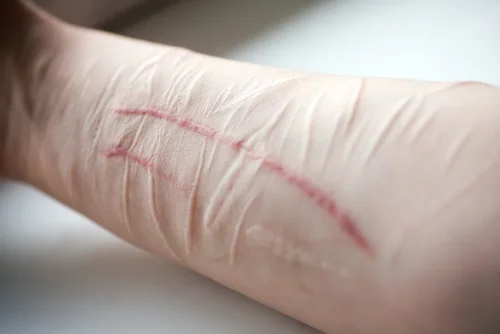+1 845 259 2974 (11 a.m to 7 p.m CST)
Bullying makes British teens torment themselves

A growing number of teenagers in Britain are indulging in the habit of self-harm. Often it is a desperate cry for help. They find a sinister pleasure in being one’s own harshest tormentor. A BBC News survey reveals the changing nature of childhood is responsible for teens’ self-harm. Teens who had been bullied in their early years were more likely to harm themselves in some way compared to teens who had not been bullied. Experts say bullying causes teens to harm themselves and this is usually a way of expressing their feelings.
Teens, when they don’t know how to deal with bullying, inflict unnecessary suffering to themselves. Though this study has established a link between bullying and self-harm but there is little or no substantial proof that bullying directly causes self-harm. Researchers say 25% of children in Britain are bullied. Self-harm is a strong expression of how someone is feeling. Self-harm is not the actual problem, experts suggest. It is the cause of an underlying problem which most likely is bullying. Most bully victims tend to replace emotional pain with physical pain.
Is the problem really growing?
A number of charities and support groups have sprouted all over the nation urging teens who indulge in self-harm to disclose their secret to an adult and seek help. Researchers question society norms before jumping to conclusions. Is the problem really increasing or has the society become more aware? It is too early to say but one thing is clear: teens are indulging in different forms of self-harm and the number has increased during the past couple of years.
Dr. Lays Cole-King from the Royal College of Psychiatrists has no doubt that the problem is on the rise. NHS England revealed that in the year 2012 alone the number of teens who were hospitalized for self-injury had increased. 11% more teens were admitted to the hospital for self-harm than the past year.
More black and Asian teens that live in the UK are cutting and burning themselves than in any other part of the world. A cultural reluctance to talk about the issue is evident among Asians that makes it even more difficult to address the issue.
Self-trolling
Cyber-bullies were blamed when Hannah Smith, 14, hanged herself last year. However investigations reveal she might have been sending vicious messages to herself via social media. Teens are increasingly indulging in another form of self-harm that uses words instead of razor blades. A growing number of British teens are partaking in the sinister habit-forming behavior of self-trolling.
The courage to seek help
For many British teens, self-harm is their ultimate cry for help. But having the courage to seek help is the first step towards dealing with the issue. Many organizations operating on a national level are encouraging British teens to trust an adult with the issue and seek help and counseling for it. With the right kind of support and help, teens who harm themselves physically and emotionally, individuals can move on in life.























